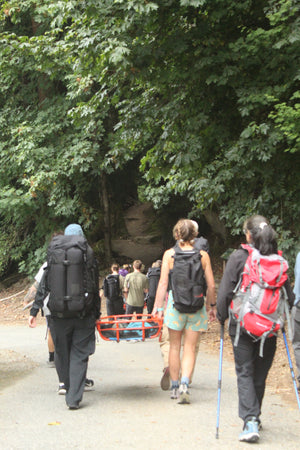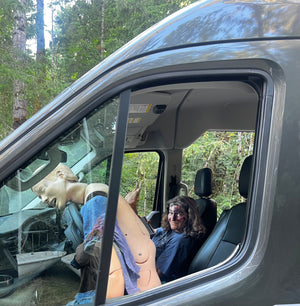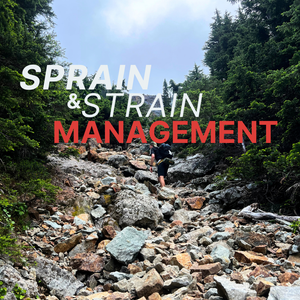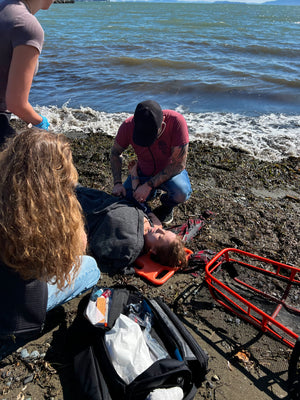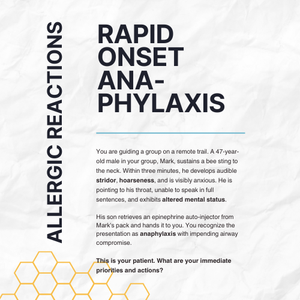WFA Curriculum & Logistics
The WFA curriculum is meticulously structured to provide the most critical, high-yield skills for managing common wilderness emergencies. The focus is on practical knowledge that you can confidently apply in the field.
Core Skills & Topics Covered:
This course provides a comprehensive introduction to wilderness medicine, including:
The Patient Assessment System: A systematic and reliable method for evaluating a patient in any environment to identify and prioritize injuries and illnesses.
Traumatic Injuries: Hands-on training for managing shock, head injuries, and potential spinal injuries, including techniques for splinting and stabilization.
Wound and Infection Management: Best practices for cleaning, closing, and dressing wounds to prevent infection when definitive care is hours away.
Environmental Emergencies: How to recognize, prevent, and treat a full range of environmental issues, including:
-
- Heat-related illnesses (heat exhaustion, heat stroke).
- Cold-related injuries (hypothermia, frostbite).
- Responses to lightning strikes, altitude illness, immersion, and submersion.
Common Medical Problems: Protocols for addressing common but serious issues like respiratory and cardiac emergencies, severe allergic reactions (anaphylaxis), abdominal pain, and altered mental states.
Lifting & Moving Patients: Proven techniques for safely moving a patient to protect both them and the rescue team from further injury.
Legal & Ethical Considerations: A clear overview of your role, responsibilities, and the legal aspects of providing care in a wilderness context.
Course Logistics
Prerequisites: Must be 18 years of age or older. No prior medical experience is required.
Duration: 2 Days (16-20 hours of in-person training).
Daily Schedule: 8:00 AM – 5:00 PM with a scheduled lunch break.
Course Format: This is a non-residential course. Students are responsible for their own food and lodging.
